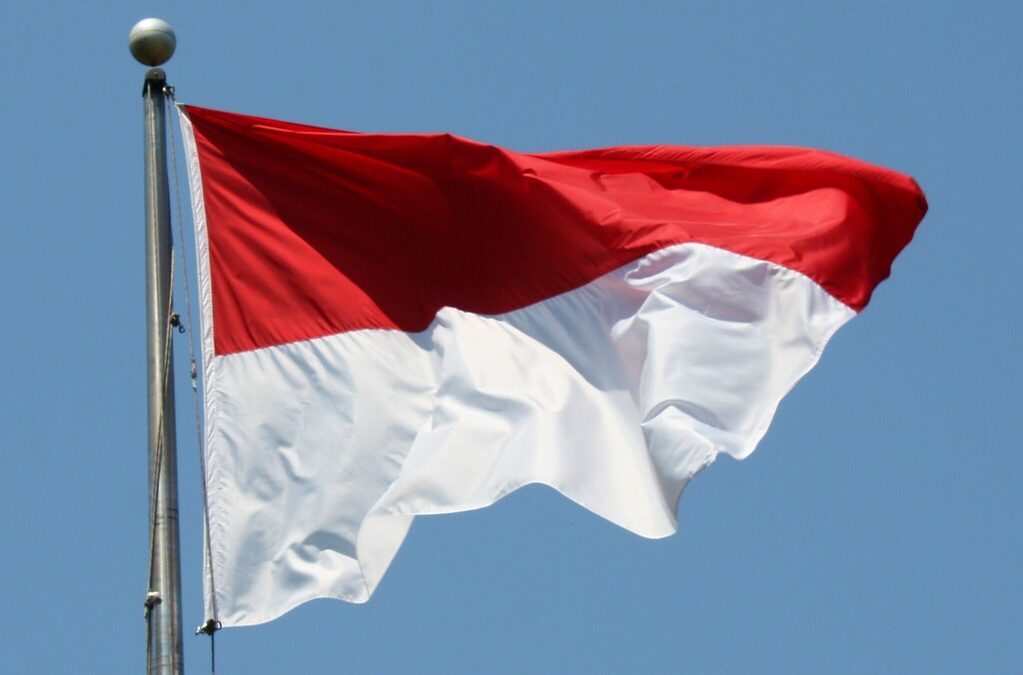
Dec 6, 2023 | Advocacy, News
The second revision of Law No. 11 of 2008 on Electronic Information and Transactions (ITE Law), which was passed on 5 December 2023, does not comply with international human rights law and standards on freedom of expression and information, said the International Commission of Jurists (ICJ) today.
On 5 December 2023, the Indonesian House of Representatives passed the bill for the second revision of the ITE Law into law.
The ICJ is gravely concerned that the revised ITE Law fails to rectify the main flaws of its previous iteration, which has been used to wrongly criminalize and restrict free expression in online spaces. The criminal provisions contained in the revised law are inconsistent with international human rights law and standards, with added provisions having the potential to exacerbate repression of online expression.
“The retention of overbroad criminal provisions in the revised ITE Law signals the continuing failure of Indonesia to comply with its international human rights obligations to respect and protect the right to freedom of expression,” said Melissa Upreti, ICJ Regional Director for Asia and the Pacific. “The revision process lacked transparency, and important recommendations made by civil society to remove the ITE Law’s fatally flawed provisions have been disregarded.”
The ICJ is also concerned that the drafting process for the second revision was opaque, with public feedback on the draft having been ignored. The lack of transparency in the drafting process contravenes Indonesia’s obligation to ensure the effective exercise of the right to participate in public affairs, as guaranteed under article 25 of the International Covenant on Civil and Political Rights (ICCPR).
“The second revision of the ITE Law failed to capitalize on the opportunity for the Indonesian authorities to strengthen the protection of online freedom of expression and to reaffirm its commitment to respecting and protecting human rights in the online space. It is imperative that the revised law repeals or substantially amends the overbroad criminal provisions that have been used with concerning frequency to arbitrarily suppress online freedom of expression and create a climate of fear,” said Upreti.
In light of these concerns, the ICJ calls for the repeal or substantial amendment of the revised ITE Law to bring it in line with Indonesia’s human rights obligations to respect and protect the right to freedom of expression and information, through a transparent process that involves the effective participation of civil society.
Criminalization of free expression online
The revised ITE Law retains the overbroad and vague provisions criminalizing “contents that violate propriety” (article 27(1)); criminal defamation (article 27A); and “content that incites, persuades or influences” others that “causes feelings of hatred or hostility” based on protected characteristics (article 28(2)). A violation of these offences may result in imprisonment and criminal fines if found convicted (articles 45 and 45A).
Additionally, the revised law incorporates a new provision that imposes criminal liability for intentionally disseminating content that a person “knew contained false statements that cause public unrest” (article 28(3)), which may result in imprisonment if found convicted (article 45A(3)).
Any restriction on the right to freedom of expression and information must comply with the elements of legality, legitimate purpose, necessity and proportionality required under article 19(3) of the ICCPR. This means that any restriction on the right to freedom of expression must be based on law that is precisely worded, and be necessary for and the least restrictive measure to respond to a legitimate aim. The only aims identified as legitimate in article 19(3) are ensuring respect of the rights or reputations of others; or for the protection of national security, public order, public health or morals.
The criminal provisions in the revised law are unnecessary for any legitimate government purpose and risk making criminals of large numbers of ordinary internet users, and chilling many others from speaking online. They are clearly inconsistent with Indonesia’s obligations under article 19 of the ICCPR to guarantee the right to freedom of expression and information. They threaten unwarranted criminal sanctions for acts that are based on vague and overbroad language, which could be applied to unduly interfere with the rights of individuals and disproportionately impact those from disadvantaged and marginalized groups.
For instance, article 27(1) of the revised ITE Law threatens criminal sanctions for disseminating content that violates “propriety”, defined as “displaying nudity, genitalia, and sexual activity that contravenes with the values existing in society […]”. While the law now includes an exemption for public interest and self-defence (article 45(2)), this definition for “propriety” is vague and overbroad, having the potential to be weaponized to unjustly sanction any form of expression by individuals from marginalized groups, such as LGBTI-related content. Further, it could enable legal reprisals against victims/survivors of gender-based violence and lead to revictimization.
Defamation should never be subject to criminal, as opposed to civil, sanctions. The UN Human Rights Committee, which authoritatively interprets the ICCPR, has called on States to end the use of the criminal law for such purposes and affirmed that “imprisonment is never an appropriate penalty [for defamation]”. While the revised ITE law now incorporates a public interest exemption, the retention of criminal defamation will continue to have a chilling effect on online freedom of expression and information. Indeed, the previous criminal defamation provision in article 27(3) of the ITE Law, has already been applied to target expression critical of the government.
The criminalization of disseminating content that incites “feelings of hatred or hostility” in article 28(2) cannot be used to justify the application of criminal law. While States must act under the ICCPR article 20 to protect against actual incitement to violence and discrimination, provoking mere “feelings” of ill-defined conceptions of “hatred or hostility” stands well below the threshold of actual acts of violence or discrimination. In any event, the use of the criminal law is a plainly disproportionate measure to address any legitimate objective. The ICJ notes that the previous criminal hate speech provision in the ITE Law has been applied in an arbitrary manner to charge journalists and convict forms of expression that do not give rise to substantial harm.
The addition of article 28(3) in the revised ITE Law to criminalize disseminating “false statements” that causes “public unrest” is vague, overbroad and imprecise, which is inconsistent with the legality principle. Authorities may not rely on the prevention of “public unrest”, vaguely defined as “conditions that disturb public order […]”, to justify the disproportionate threat of criminal sanctions, especially imprisonment. The ICJ notes how other criminal provisions sanctioning disinformation, based on colonial-era regulations, have been used to arbitrarily sanction legitimate expression protected under international human rights law, including public interest reporting or critical opinions concerning public officials.
This press release can be downloaded in Bahasa Indonesian here.
Contact
Melissa Upreti, ICJ Regional Director for Asia and the Pacific, e: melissa.upreti@icj.org
Daron Tan, ICJ Associate International Legal Adviser, e: daron.tan@icj.org
Yogi Bratajaya, ICJ Legal Consultant, e: yogi.bratajaya@icj.org
Further reading
Dictating the Internet: Curtailing Free Expression, Opinion and Information Online in Southeast Asia
Indonesia: ICJ asks court to ensure that defamation and “false information” laws not be used to silence and criminalize human rights defenders
Indonesia: Law No. 12 of 2022 on Sexual Violence Crimes and Online Gender-Based Violence Against Women
Silenced But Not Silent: Lesbian, Gay, Bisexual and Transgender Persons’ Freedom of Expression and Information Online in Southeast Asia
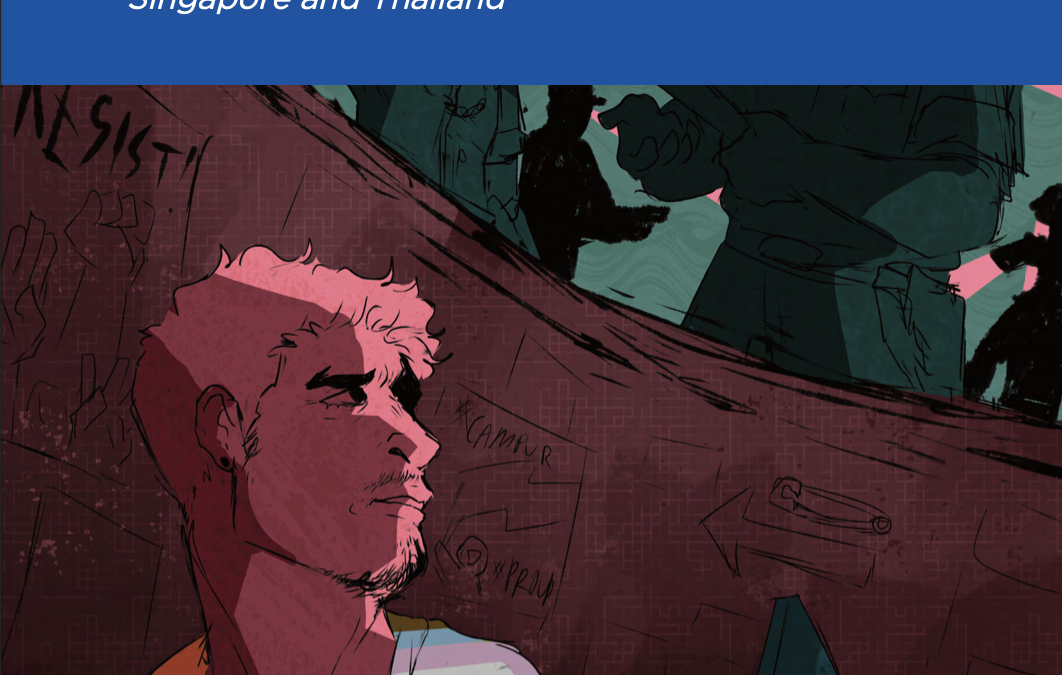
Jul 25, 2023 | Advocacy, News, Publications
The authorities in Indonesia, Malaysia, Philippines, Singapore and Thailand should immediately reform laws, policies and practices that have led to violations of the right of lesbian, gay, bisexual, transgender and gender diverse (LGBT) persons to safely and freely express themselves and access information online, the International Commission of Jurists (ICJ) said in a new report launched today.
The 50-page report, Silenced But Not Silent: Lesbian, Gay, Bisexual and Transgender Persons’ Freedom of Expression and Information Online in Southeast Asia, documents the restrictions and barriers LGBT individuals face to safely and freely express themselves and access information online in Indonesia, Malaysia, Philippines, Singapore and Thailand.
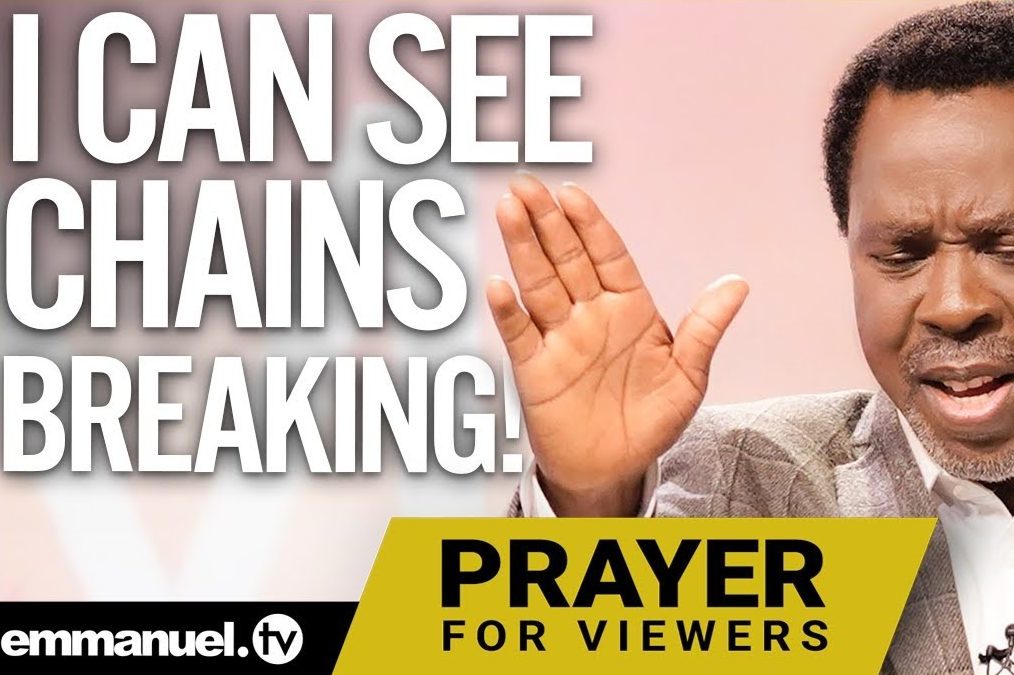
Jun 4, 2021 | Advocacy, Open letters
In May 2021 the ICJ wrote to The MultiChoice Group in South Africa urging it to suspend Emmanuel TV on any of the DSTV platforms for broadcasting televangelist Pastor TB Joshua’s multiple video clips ostensibly depicting violent ‘conversion therapy’ and hate speech against LGBT persons amounting to discrimination and human rights abuses. MultiChoice responded that it has “no editorial control or oversight” over Emmanuel TV as it is a “third-party channel” and therefore MultiChoice cannot investigate the incident further or take any remedial action.
MultiChoice claims on their website to “entertain, inform and empower African communities”. In addition to this, their entertainment platforms are a hub for approximately 14 million people across 50 countries. MultiChoice has a huge reach into African countries and in the homes of millions of people living in Africa. As a result, they have a responsibility to act in a way which does not promote harmful practises.
In response to ICJ’s letter, MultiChoice stated that it does not review the content broadcast on third-party channels such as Emmanuel TV prior to its broadcast. In place of a thorough investigation, the entertainment group said that it contacted Emmanuel TV and the latter stated that the ‘conversion therapy’ clips were not broadcast in April 2021. It is significant to note that Emmanuel TV did not deny that the clips were aired at all. Rather, MultiChoice alleged that it was simply “unable” to independently verify that the clip was broadcasted in April 2021 or at all.
Contrary to the impression given in its letter to the ICJ, MultiChoice is not limited to investigating offensive broadcasts that are aired within a specific time period. Additionally, while the ICJ notes MultiChoice’s assertion that Emmanuel TV is a third-party channel and consequently MultiChoice has no editorial control or oversight over the content of the channel, the ICJ believes that MultiChoice has a duty to not broadcast material that is discriminatory and in contravention of the South African Constitution.
MultiChoice has a responsibility to conduct a serious investigation into this matter and take the necessary remedial action. Consequently, we do not find that Emmanuel TV’s confirmation to MultiChoice, that the clip was not broadcast during April 2021 is sufficient; and MultiChoice’s inability to verify whether this program was broadcast at all, is unsatisfactory.
The UN Independent Expert on protection against violence and discrimination based on sexual orientation and gender identity, under the umbrella of the United Nations Human Rights Commission, has concluded in May 2020, that conversion therapy amounts to torture and ill-treatment and has called for a global ban on such practices.
In light of this, the ICJ is of the view that MultiChoice has a greater responsibility to the African audience to refrain from participating in the broadcast of such harmful practices, and must publicly take a stance against facilitating the airing of such broadcasts. The ICJ believes that MultiChoice’s responsibility as Africa’s “leading entertainment company” is not to pay “lip service” to the values of the South African Constitution, but rather to hold itself to higher thresholds of accountability.
ICJ has consequently urged MultiChoice to:
- Independently investigate this and other discriminatory and potentially unlawful broadcasts by Emmanuel TV and take appropriate remedial measures.
- Undertake to exclude Emmanuel TV as part of MultiChoice’s package to the public, or alternatively, to heavily condition its contract with Emmanuel TV to disallow the broadcast of offensive materials; should the investigation lead to the conclusion that the clip was broadcasted by them.
- Ensure that such offensive materials are not broadcast on any MultiChoice channels, irrespective of their status as third-party channels.
- Offer an apology from Multichoice Group to the LGBT persons, unless MultiChoice is able to demonstrate independently that the clip was not broadcast at all on their platform, neither by Emmanuel TV nor by any other third-party channel.
- Undertake an updating of the MultiChoice Group’s internal policies to bring them in line with human rights standards, the South African Constitution, and local laws on non-discrimination. This includes contractual arrangements with third party channels like Emmanuel TV which may broadcast discriminatory content.
Contact
Kaajal Ramjathan-Keogh, ICJ Africa Director, Kaajal.Keogh(a)icj.org
Tanveer Jeewa, Legal and Communications Officer, Tanveer.Jeewa(a)icj.org

May 3, 2021 | Advocacy, Open letters
In a letter of 3 May, the ICJ called on the Non-Executive Chair of the Multichoice Group, and the board of directors to immediately suspend Emmanuel TV on any of the DSTV platforms for broadcasting of televangelist Pastor TB Joshua’s multiple video clips ostensibly depicting a violent ‘conversion therapy’ and hate speech against LGBT persons amounting to human rights abuses.
One of the videos, shows Joshua slapping and pushing a woman at least 16 times, and telling her: “There is a spirit disturbing you. She has transplanted herself into you. It is the spirit of woman.”
By broadcasting Joshua’s channel, which openly advocates hatred against, and causes harm to, LGBTI persons, Multichoice Group’s actions are inconsistent with human rights law and standards, the South African Constitution and domestic legislation, which all proscribe discrimination based on sexual orientation.
The ICJ therefore urged Multichoice to urgently take the following steps to remedy this situation:
1. Immediately suspend Emmanuel TV on any of the DSTV platforms including Channel 309.
2. Immediately remove the offending video clips and provide an undertaking not to air them or similar offensive materials again.
3. Offer an apology from Multichoice Group to the LGBT persons.
4. Undertake an updating of the MultiChoice Group’s internal policies to bring them in line with human rights standards, the South African Constitution, and local laws on non-discrimination.
To read the full letter, click here.
Contact
Kaajal Ramjathan-Keogh, ICJ Africa Director, Kaajal.Keogh(a)icj.org
Tanveer Jeewa, Legal and Communications Officer, Tanveer.Jeewa(a)icj.org
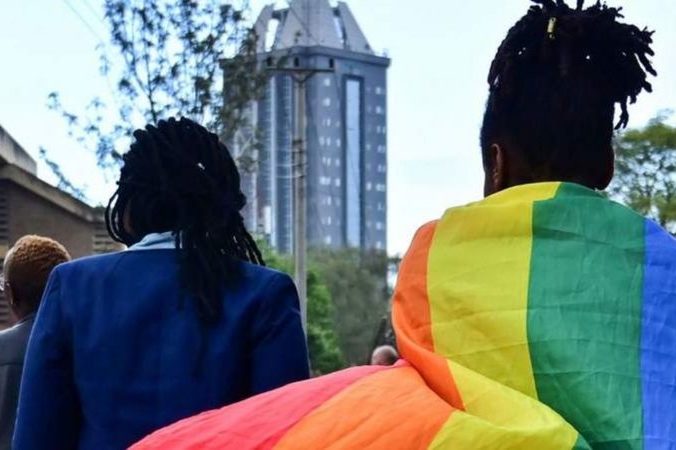
Apr 26, 2021 | News
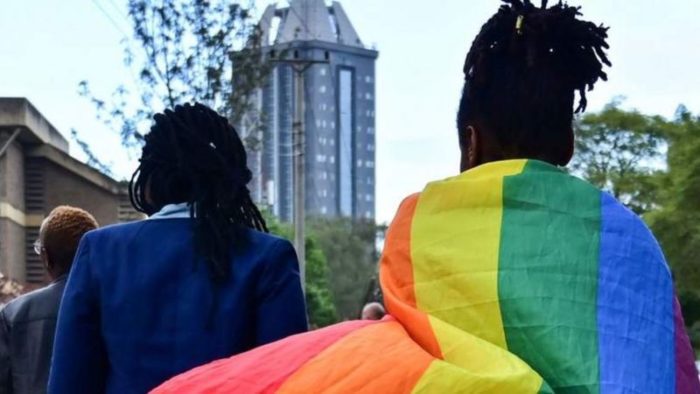
Homophobia is against African notions of ubuntu.
Over the past month, the killings of four gay men have made headlines in South Africa. Lonwabo Jack, a 22-year-old gay man, was killed on his birthday, 18 April. Earlier in April, two more gay men, were killed – Nathaniel Mbele in Vanderbijlpark and Sphamandla Khoza in Durban.
Lonwabo Jack’s killing occurred just two days after advocates for the human rights of lesbian, gay, bisexual, transgender and intersex people (LGBTI) led protests in front of Parliament in Cape Town demanding that the South African government address the countrywide homophobic violence that continues unabated.
The group Justice for Lulu, founded after Andile “Lulu” Ntuthela, a 40-year-old gay man, was killed in the Eastern Cape on 10 April. The group handed a memorandum to Parliament calling, among other things, for an urgent debate on hate crimes. The Gay and Lesbian Alliance of South Africa (GLASA), in turn, called for the government to speed up the adoption and enactment of the Prevention and Combating Hate Crimes and Hate Speech Bill B9 of 2018.
These hate crimes and attacks on the LGBTI community have been ongoing for many years. Homophobia is endemic in South Africa, despite the comprehensive and progressive legal framework, including legal protection for the human rights of LGBTI persons.
As attested to by the ICJ’s recent report, “Invisible, Isolated, and Ignored: A report on Human Rights abuses on Sexual Orientation and Gender Identity/Expression in Colombia, South Africa and Malaysia”, and illustrated by these ongoing attacks, these legal protections do not translate into real protection of human rights in practice.
“South Africa is a heteronormative society where patriarchy is deeply rooted; this contributes to violence and discrimination against LGBTI persons. The view that homosexuality is un-African is held by many. Political and cultural leaders have in the past publicly espoused anti-gay sentiments and this encourages discriminatory attitudes and violence against people based on their real or imputed sexual orientation, gender identity or expression”, said Kaajal Ramjathan-Keogh, Director of ICJ Africa.
Section 9(3) of the South African Constitution provides that the State may not unfairly discriminate directly or indirectly against anyone on the ground of sexual orientation, and the African Charter on Human and Peoples’ Rights (African Charter) grants protection against prohibited discrimination, and entitles every person to equal protection of the law.
Additionally, the African Charter entitles every individual to respect of their life and the integrity of their person, and prohibits torture, cruel, inhumane or degrading punishment and treatment.
In its Resolution on ‘Protection against Violence and Other Human Rights Violations against Persons on the basis of their real or imputed Sexual Orientation or Gender Identity’, the African Commission strongly urged “States to end all acts of violence and abuse, whether committed by State or non-state actors, including by enacting and effectively applying appropriate laws prohibiting and punishing all forms of violence including those targeting persons on the basis of their imputed or real sexual orientation or gender identities, ensuring proper investigation and diligent prosecution of perpetrators, and establishing judicial procedures responsive to the needs of victims.”
Notwithstanding South Africa’s legal obligations, LGBTI persons face significant barriers in accessing justice and effective remedies for human rights violations; particular challenges affect the criminal justice system, resulting in many cases concerning the protection of human rights of LGBTI persons not reaching the courts.
These barriers to access to justice and effective remedies for human rights violations include experiences of discrimination within the criminal justice system, as well as societal homophobia and transphobia. This is in contravention of South Africa’s duties under international, regional and national law to afford every person equal protection of the law.
The Prevention and Combatting of Hate Crimes and Hate Speech Bill needs to be adopted as a matter of urgency. It is important as measure of deterrence and to ensure that perpetrators of hate crimes be brought to justice.
The ICJ condemns the killings of members of the LGBTI community and calls on the South African government to acknowledge the discrimination, hatred and violence that LGBTI persons face every day in South Africa and to act decisively to address these harms.
Progressive legislation is not enough, the criminal justice system needs to be sensitized and educated to eliminate experiences of societal homophobia and transphobia. We echo the demands in this joint statement by multiple human rights organizations in South Africa.
Whatever one’s real or imputed sexual orientation, gender identity or expression, nobody should have to live in fear, everyone should be able to have trust in the police and judicial system. The homophobic acts and sentiments in South Africa are against African notions of ubuntu. Society cannot be free, until all its people are free, and treated with dignity.
Contact:
Nokukhanya (Khanyo) Farisè, Legal Adviser (Africa Regional Programme), e: nokukhanya.farise(a)icj.org
Tanveer Rashid Jeewa, Communications and Legal Officer, e: tanveer.jeewa(a)icj.org










